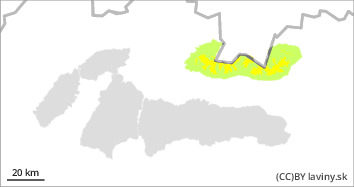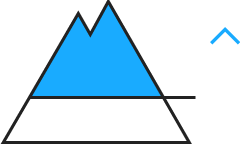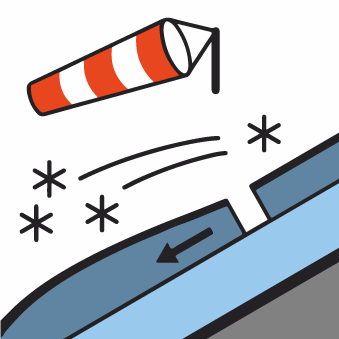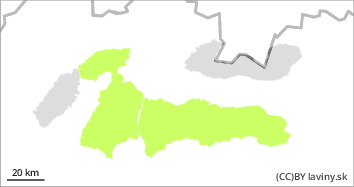
Danger level
 | treeline |
|  |
|  |

Watch out for wind-beaten slabs of new snow.
In the Western and High Tatras there is a moderate avalanche danger (2nd degree) above the forest zone. 10 - 15 cm of new snow will fall. The snow will be beaten by the wind into slabs and pillows of different hardness, which will be placed on a hard to icy base, while these two layers will be weakly interconnected. Due to the overall low snow cover, only small avalanches may occur.
Snowpack
The snow is very unevenly distributed due to the strong wind. The ridges are blown on hard ground. New snow falls on a very hard, even icy base, which has been created by the fact that it has cooled down considerably after the warming period. There are several ice crusts in the snow cover. The crusts are not load-bearing, so they break through when moving on foot. Movement off the beaten track is difficult. On average there is between 20 and 50 cm of snow in our mountains. The continuous snow cover is mostly above the forest belt.
Tendency
No change


